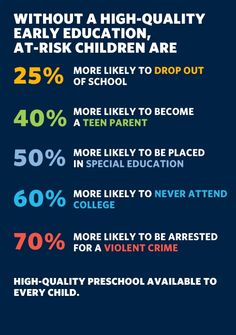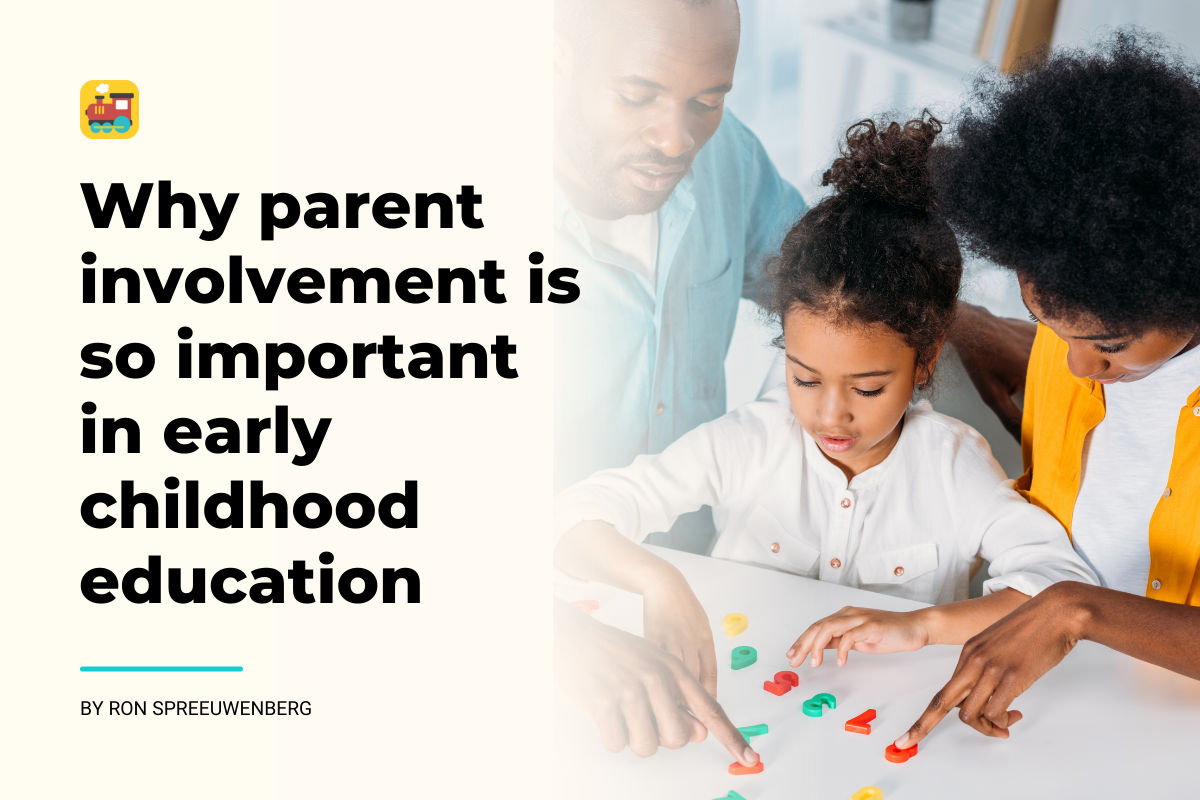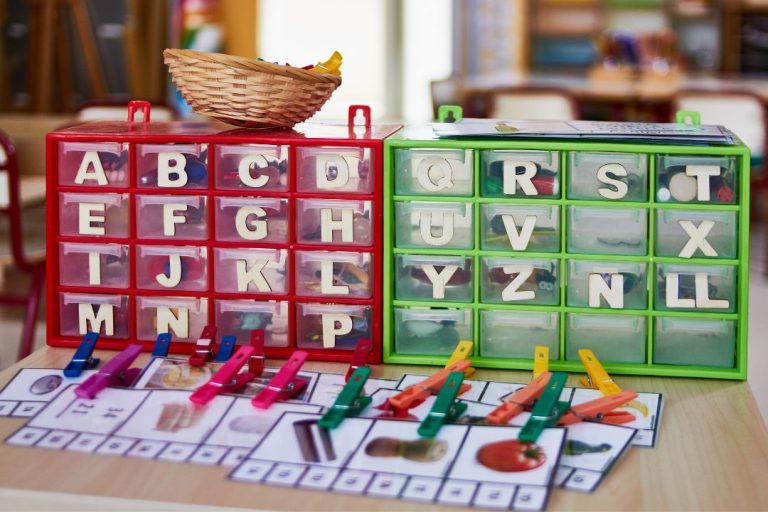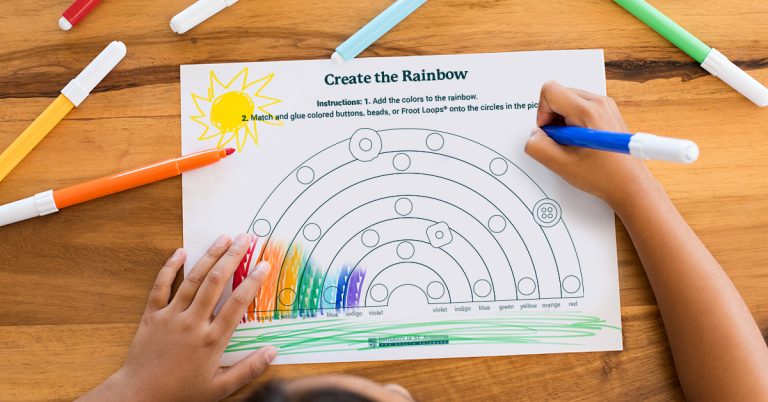Why Early Childhood Education Matters: Vital Benefits Revealed

Early Childhood Education is crucial for laying the foundation of a child’s future success and development. It shapes lifelong learning habits and social skills.
Investing in quality early childhood education programs can greatly impact a child’s cognitive abilities and emotional well-being, setting them up for academic achievement later in life. Additionally, early education helps in developing crucial skills such as problem-solving, critical thinking, and creativity.
By providing a nurturing and stimulating environment during these formative years, children are better equipped to thrive academically and socially as they progress through their educational journey. The benefits of early childhood education extend far beyond the classroom, influencing a child’s overall growth and shaping their future prospects.
Importance Of Early Childhood Education
Early childhood education plays a crucial role in shaping a child’s future. It provides the foundation for lifelong learning and development, nurturing essential skills and abilities during the formative years. This period is a critical window for cognitive, social, and emotional growth, setting the stage for a child’s overall success.
Developmental Milestones
Early childhood education is instrumental in achieving developmental milestones. It helps children reach crucial stages in physical, emotional, and cognitive growth. By engaging in age-appropriate activities and interactions, children can develop essential motor skills, communication abilities, and social competencies that are integral to their overall development.
Cognitive Growth
Cognitive growth is significantly influenced by early childhood education. It fosters a child’s ability to think critically, solve problems, and make decisions. Through stimulating activities and educational experiences, children can enhance their language, numeracy, and reasoning skills, laying the groundwork for academic success and lifelong learning.

Credit: www.umassglobal.edu
Social Benefits
Early childhood education plays a crucial role in shaping a child’s social development. By providing a nurturing environment and structured learning experiences, early education lays the foundation for enhanced social skills and improved communication.
Enhanced Social Skills
Early childhood education helps children develop essential social skills, such as sharing, cooperation, and empathy. Through interactive activities and group play, children learn to navigate social situations and build relationships with their peers. These experiences contribute to the development of their emotional intelligence and create a strong sense of belonging within their social circles.
Improved Communication
Effective communication is a fundamental aspect of social interaction. Early childhood education focuses on language development and communication skills, providing children with the tools to express themselves confidently and articulate their thoughts and feelings. By engaging in conversations, storytelling, and group discussions, children learn to convey their ideas and emotions effectively, setting the stage for successful interpersonal relationships in the future.
Emotional Well-being
Emotional well-being plays a crucial role in the overall development of young children. It significantly impacts their ability to form healthy relationships, cope with challenges, and navigate the complexities of the world around them. Early childhood education plays a vital role in nurturing emotional well-being by providing children with a supportive and enriching environment to learn and grow.
Building Resilience
Early childhood education equips children with the necessary tools to build resilience in the face of adversity. By encouraging them to explore, take risks, and learn from setbacks, it fosters a sense of inner strength and perseverance. This foundation of resilience enables children to bounce back from challenges, setbacks, and disappointments, preparing them for the ups and downs of life.
Managing Emotions
Through early childhood education, children learn to recognize and manage their emotions effectively. They are taught to express their feelings in healthy ways, develop empathy for others, and regulate their emotional responses. This not only contributes to their mental well-being but also enhances their ability to form positive relationships and navigate social situations with confidence.

Credit: www.himama.com
Academic Advantages
Academic advantages of early childhood education are numerous and impactful. Research has shown that children who participate in high-quality early education programs tend to demonstrate better academic performance throughout their school years. The foundation of early literacy skills and mathematical understanding established during early childhood education can have a lasting positive impact on a child’s academic journey.
Early Literacy Skills
Early literacy skills are critical for a child’s academic success. Through early childhood education, children are exposed to rich language experiences that help them develop vocabulary, phonemic awareness, and comprehension skills. These fundamental skills lay the groundwork for strong reading and writing abilities, giving children a head start in their academic pursuits.
Mathematical Foundations
Mathematical foundations established in early childhood education play a crucial role in shaping a child’s academic trajectory. By engaging in hands-on activities and exploratory learning, young children develop a solid understanding of mathematical concepts. This early exposure to math fosters confidence and a positive attitude towards numbers and problem-solving, which are essential for academic success in later years.
Long-term Impact
Long-term Impact:
Investing in early childhood education has a profound long-term impact on children’s lives, shaping their future success and well-being.
Higher Educational Attainment
Early education sets the foundation for lifelong learning, leading to higher educational attainment and academic success.
Increased Career Opportunities
Quality early education paves the way for increased career opportunities and economic stability in adulthood.

Credit: m.facebook.com
Parental Involvement
Engaging in early childhood education is crucial for parents as it lays the foundation for a child’s future success. Parental involvement fosters a supportive environment that enhances learning and development during the critical formative years. This active participation promotes cognitive, social, and emotional growth in children.
Parents play a vital role in the education and development of their children. Their involvement in early childhood education is crucial in building a strong foundation for their child’s future success. In this blog post, we will explore the importance of parental involvement and how it can support a child’s learning at home and foster positive parent-child relationships.Supporting Learning At Home
Parents are their child’s first teachers, and they can continue to support their child’s learning at home. By creating a learning-friendly environment, parents can encourage their children to explore, discover, and learn. Here are some ways parents can support their child’s learning at home:- Read to your child daily and encourage them to ask questions
- Provide opportunities for your child to play and experiment with different materials
- Engage your child in everyday activities such as cooking, cleaning, and shopping
- Encourage your child to express themselves through art, music, and storytelling
Positive Parent-child Relationships
Parental involvement in early childhood education can also foster positive parent-child relationships. When parents are involved in their child’s education, they show their child that they value and care about their education. This positive reinforcement can strengthen the parent-child bond and build trust and communication. Here are some ways parents can foster positive parent-child relationships:- Attend parent-teacher conferences and school events
- Volunteer in the classroom or at school events
- Communicate regularly with your child’s teacher about their progress
- Listen to your child’s concerns and opinions about school
Economic Benefits
Early childhood education provides substantial economic benefits that extend beyond individual families to society as a whole.
Reduced Social Costs
- Early education decreases future crime rates.
- Investing in children’s development lowers welfare dependence.
Workforce Productivity
- Quality early education leads to a skilled workforce.
- Well-prepared individuals contribute to economic growth.
Policy Implications
Investment In Early Childhood Programs
Investing in early childhood programs is crucial for the long-term success of our society. By allocating resources to quality early childhood education, we can ensure that children have a strong foundation for future learning and development. This investment has the potential to reduce future costs related to remedial education, juvenile delinquency, and healthcare expenses. It also contributes to the economy by producing a skilled workforce and reducing the need for social services.
Advocacy For Quality Education
Advocating for quality education in the early years is essential for creating a supportive environment for young children. This involves promoting policies that prioritize the training and support of early childhood educators, as well as the implementation of evidence-based practices. By advocating for quality education, we can ensure that all children have access to the resources and support they need to thrive academically and socially.
Frequently Asked Questions
What Is Early Childhood Education And Why Is It Important?
Early childhood education is essential for a child’s development, providing foundational skills and fostering cognitive growth. It sets the stage for future academic success and social-emotional well-being.
Why Are The First 5 Years Of Child Development So Important?
The first 5 years of child development are crucial as they lay the foundation for lifelong learning, behavior, and health. During this period, the brain undergoes rapid growth, making it easier to learn new skills and behaviors. Early experiences also shape a child’s future social and emotional development.
Why Is Health Important In Early Childhood Education?
Health is crucial in early childhood education as it supports overall development, boosts cognitive function, and enhances learning abilities. Good health in children fosters optimal growth and prepares them for a successful academic journey.
Why Is The Early Childhood Environment So Important?
The early childhood environment is crucial as it significantly impacts a child’s growth and development. It shapes their cognitive, emotional, social, and physical abilities and influences their future success. The quality of interactions, experiences, and relationships in the environment plays a vital role in fostering a child’s learning and well-being.
Providing a safe, nurturing, and stimulating environment can help children develop a strong foundation for lifelong learning and health.
Conclusion
Early childhood education plays a vital role in shaping a child’s future. It fosters cognitive and social development, laying a strong foundation for lifelong learning. By investing in quality early education, we can ensure that children have the necessary skills and abilities to thrive in the future.
It’s a crucial step toward creating a brighter and more prosperous society.
Lorem Ipsum is simply dummy text of the printing and typesetting industry. Lorem Ipsum has been the industry’s standard dummy text ever since the 1500s, when an unknown printer took a galley of type and scrambled it to make a type specimen book.






